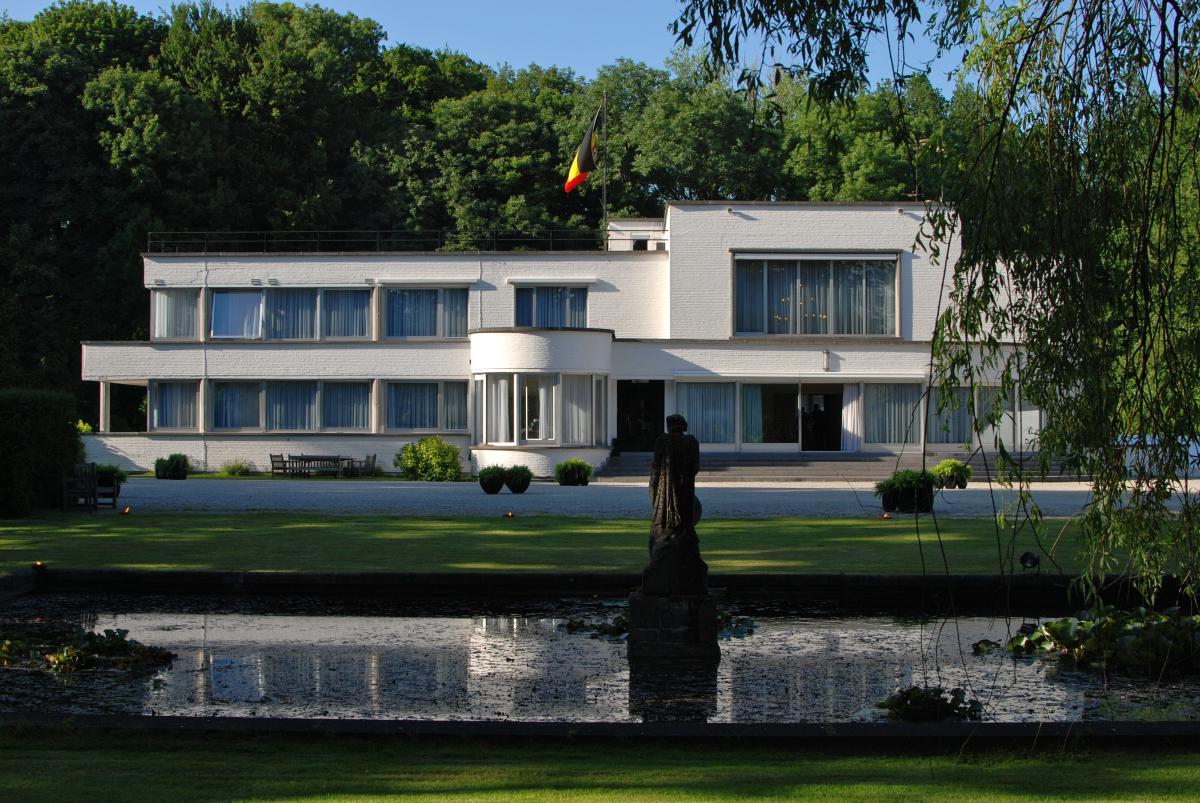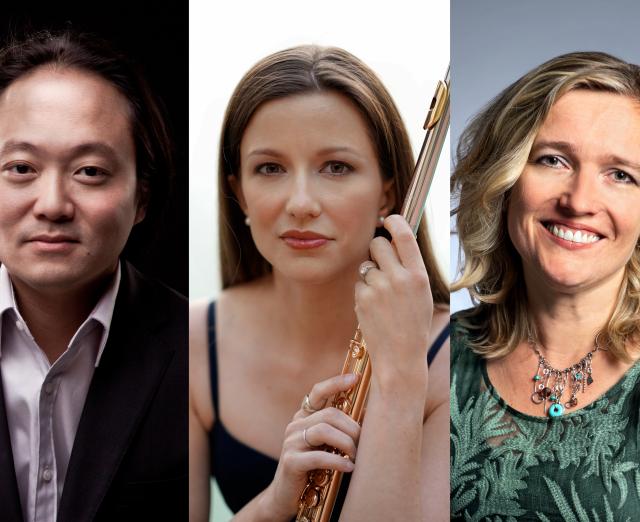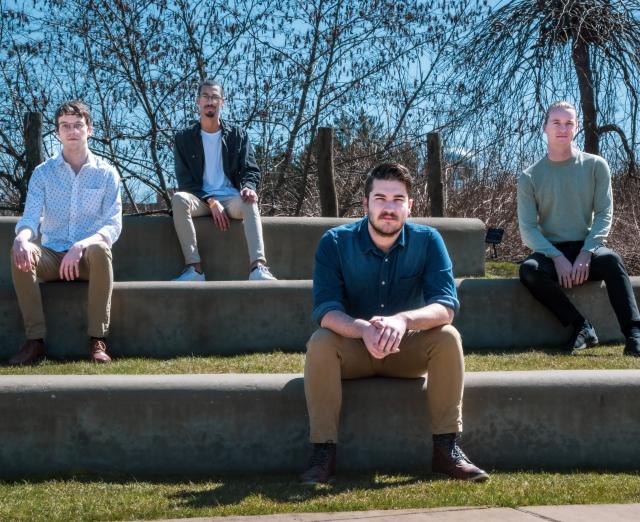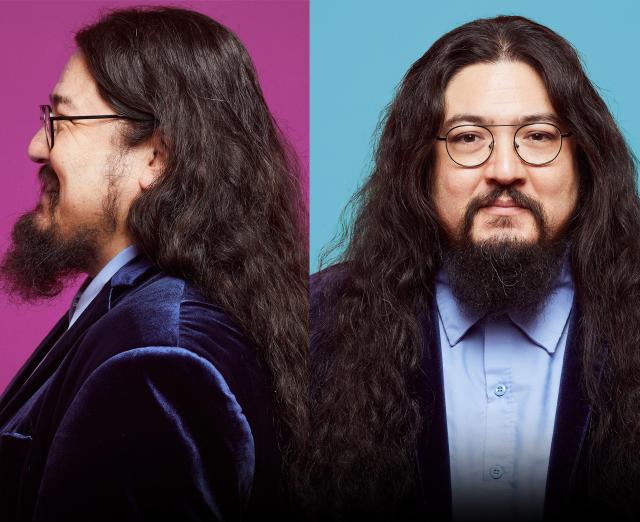Musicians from the Queen Elisabeth Music Chapel
Chamber Ensemble

Inaugurated on 12 July 1939, the Queen Elisabeth Music Chapel provides high-level training to exceptional young talents. A training center of excellence with an international scope and reputation, its program is reserved for outstanding musicians in the disciplines of piano, violin, cello, viola, chamber music and voice. At the time of its creation already, the renowned critic Emile Vuillermoz described the Music Chapel as a sort of “modern Villa Medici”.
The customized training of each musician is structured around six main lines. The presence of the masters, who pursue intense professional careers in the music world, is the cornerstone of the curriculum. The master transmits knowledge by informally transmitting his or her professional experience, but also by accompanying and supporting the young talents as they take their first steps in the professional world. Joint performances on stage by the master and the young talents also make up an essential component of this knowledge transmission.
The Music Chapel offers the Artists in Residence the opportunity to perform on stage thanks to a complete program of concerts and recitals in collaboration with various orchestras, festivals and concert halls, as well as thanks to its productions and coproductions. This enables young artists to grow in the presence of different audiences and to then enter the professional world more smoothly. The Music Chapel supports the artists in the early steps of their careers and helps them to establish a name for themselves. The Music Chapel wants to take into account the artistic personality of each artist, but also assist them in their personal development, both mental and physical.
All these activities take place in a space and environment that stimulates concentration, work, meditation, conviviality and interaction. The quality of this exceptional place, the proximity between the Music Chapel team, the faculty and the young musical talents are an integral part of the pedagogical project.
‘We play the way we are.’ Those few words have rarely sounded so true as in the case of Gary Hoffman. In front of audiences or of his students at the Queen Elisabeth of Belgium Music Chapel and the most prestigious American campuses, he does not come to deliver a message. He stands before us, not to please us. He plays out of necessity, because music and life are one. It seems so simple in a world awash with images, slogans and attitudes.
Like any poet of the concert platform, Gary Hoffman took responsibility for his choices early on. Thanks to his parents, both professional musicians, and later to his teachers, Karl Fruh in Chicago and, even more vital, János Starker, he is a stranger to compromise. Winning the Premier Grand Prix of the Rostropovich Competition in Paris in 1986 opened doors for him. For all that, he has never made any concessions in his artistic decisions.
He plays to be himself. The rules impose themselves naturally: to master the instrument’s technique and enter step by step into the universe of a work. But to what end? If it is to seek perfection, Gary Hoffman is happy to miss his turn . . . But if his playing awakens the beauty of a phrase and he can share its light with others, the artist is fulfilled. In his eyes, the cult of efficiency and volume never takes precedence over the expression of beauty, which has nurtured him since his youth, when he listened to the greatest musicians and discovered cinema and painting, his other passions. To build a philosophy of life through art: is there any nobler ambition?
He plays to transmit absolute respect for the score, but also the need to question tradition. To admire is not to be enslaved. His recordings for La Dolce Volta bear witness to this. To walk onto the platform, to observe the microphone that picks up the soundwaves, is to have already thought, to have forbidden oneself no reflection, even if it should run counter to current fashion. To young musicians, he passes on an appetite for doubt, curiosity and risk, from the standard repertoire to new music. Why do we find so many artists of the past so appealing, when we now readily acknowledge the imperfections in their playing? How could he not already sing in his mind’s ear, even before placing his bow on the strings of the Nicolò Amati cello of 1662 which accompanies him everywhere and which once belonged to Leonard Rose?
He plays for an ideal, ever since his debut at London’s Wigmore Hall at the age of fifteen: to serve the composer, most assuredly, with a proposal, his proposal. It is impossible, in that case, to lie to oneself under the gaze of a Pablo Casals or an Artur Rubinstein. Gary Hoffman recalls one of the most moving moments of his life, when he saw Rubinstein walk across the platform to the keyboard. The simple movement of his body in space became the essence of his existence, the prelude to the ineffable. It is silence, that refuge between the notes which produces music. Music is sufficient unto itself: it soothes the sorrows of life. Gary Hoffman makes no distinction between the word and the vibration of the string . . . All is delicious confusion and wonderful unpredictability. Like life.
1st prize winner of the Lipizer International Violin Competition, violinist Karen Su (1998) made her international debut as the featured soloist in the Gergiev Festival.
Currently an Artist in Residence at the Queen Elisabeth Music Chapel under the mentorship of Augustin Dumay, Karen was born in Los Angeles (USA) into a musical family, with both her father and older sister being violinists. She began studying the violin at age 4 with her father Elmer Su, and later simultaneously with Igor and Vesna Gruppman.
Critically acclaimed to embody “confidence and drive…warmth and intensity” (The Strad) as a performer, Karen is known for her rich playing and moving musicality.
Having appeared as a soloist with orchestras in North America, Europe, and Asia, highlights of previous and upcoming solo engagements include the Trondheim Symphony Orchestra, Royal Liège Philharmonic Orchestra, Boca de Rio Philharmonic, Sinfonia Rotterdam, Kiev Radio Symphony Orchestra, Guanajuato Symphony Orchestra, among others..
Karen has been named prize winner of multiple international competitions, such as Lipizer, Princess Astrid, and Rubinstein International Violin Competitions.
She is the recipient of numerous awards, including the Hartman Award, Prins Bernhard Award, Belgian American Educational Foundation Award, and was named as a candidate for the Borletti Buitoni Trust Award.
In addition to solo playing, Karen is an active and passionate chamber musician and works with musicians such as Augustin Dumay, Gary Hoffman, Jean-Claude Vanden Eynden, and Lorenzo Gatto.
Karen currently plays on a 1747 Nicolo Gagliano from an anonymous donor
Praised by The Cleveland Classical Review for his “astonishingly confident technique” and The New York Times for “thrilling [and] triumphant” performances, pianist Henry Kramer is developing a reputation as a musician of rare sensitivity who combines stylish programming with insightful and exuberant interpretations. In 2016, he garnered international recognition with a Second Prize win in the Queen Elisabeth Competition in Brussels. Most recently, he was awarded a 2019 Avery Fisher Career Grant by Lincoln Center – one of the most coveted honors bestowed on young American soloists.
Henry emerged as a winner in the National Chopin Competition in 2010, the Montréal International Competition in 2011 and the China Shanghai International Piano Competition in 2012. In 2014 he was added to the roster of Astral Artists, an organization that annually selects a handful of rising stars among strings, piano, woodwinds and voice candidates. The following year, he earned a top prize in the Honens International Piano Competition.
Kramer has performed “stunning” solo recital debuts, most notably at Alice Tully Hall as the recipient of the Juilliard School’s William Petschek Award, as well as at Amsterdam’s Concertgebouw. At his Philadelphia debut, Peter Dobrin of The Philadelphia Inquirer remarked, “the 31-year-old pianist personalized interpretations to such a degree that works emerged anew. He is a big personality.”
A versatile performer, Kramer has soloed in concertos with the Bilkent Symphony Orchestra, Belgian National Orchestra, Shanghai Philharmonic Orchestra, Indianapolis Symphony and the Calgary Philharmonic Orchestra, among many others, collaborating with conductors such as Marin Alsop, Gerard Schwarz, Stéphane Denève, Jan Pascal Tortelier and Hans Graf. Highlights of the 2021-22 season included a solo recital at the BravoPiano! festival in Hilton Head where he premiered a work he commissioned by composer Han Lash, performing Rachmaninoff's third piano concerto with the Hartford Symphony to rave reviews, features on series in Washington (Phillips Collection), Durham (St. Stephens), and Seattle (Emerald City Music), concerts throughout Southern California with Camerata Pacifica, and summer appearances at the Anchorage, Lakes Area, Rockport, and Vivo music festivals. Appearances in the 2022-23 season include a debut with New York's Salon Séance, recitals with Newport Classical, Toronto's Koerner Hall, Vancouver Chamber Music Society, and additional appearances in Ithaca, Detroit, Seattle, and Montréal.
His love for the chamber music repertoire began early in his studies while a young teenager. A sought-after collaborator, he has appeared in recitals at the Chamber Music Society of Lincoln Center, the Mainly Mozart Festival, the Mostly Mozart Festival, and La Jolla Music Society’s Summerfest. His recording with violinist Jiyoon Lee on the Champs Hill label received four stars from BBC Music Magazine. This year, Gramophone UK praised Kramer’s performance on a recording collaboration (Cedille Records) with violist Matthew Lipman for “exemplary flexible partnership.” Henry has also performed alongside Emmanuel Pahud, the Calidore and Pacifica Quartets, Miriam Fried, as well as members of the Berlin Philharmonic and Orchestra of St. Luke’s.
Teaching ranks among his greatest joys. In the fall of 2022, Kramer joined the music faculty of Université de Montréal. Previously, he served as the L. Rexford Whiddon Distinguished Chair in Piano at the Schwob School of Music at Columbus State University in Columbus, Georgia. Throughout his multifaceted career, he also held positions at Smith College and the University of Missouri Kansas City Conservatory of Dance and Music.
Kramer graduated from the Juilliard School, where he worked with Julian Martin and Robert McDonald. He received his Doctorate of Musical Arts from the Yale School of Music under the guidance of Boris Berman. His teachers trace a pedagogical lineage extending back to Beethoven, Chopin and Busoni. Kramer is a Steinway Artist.


